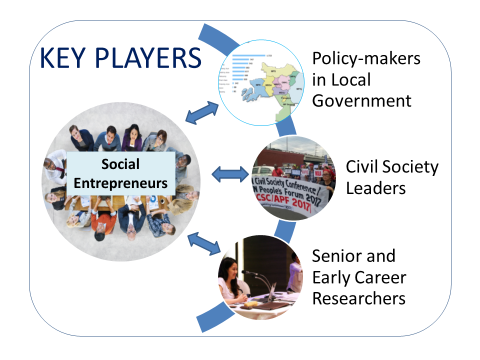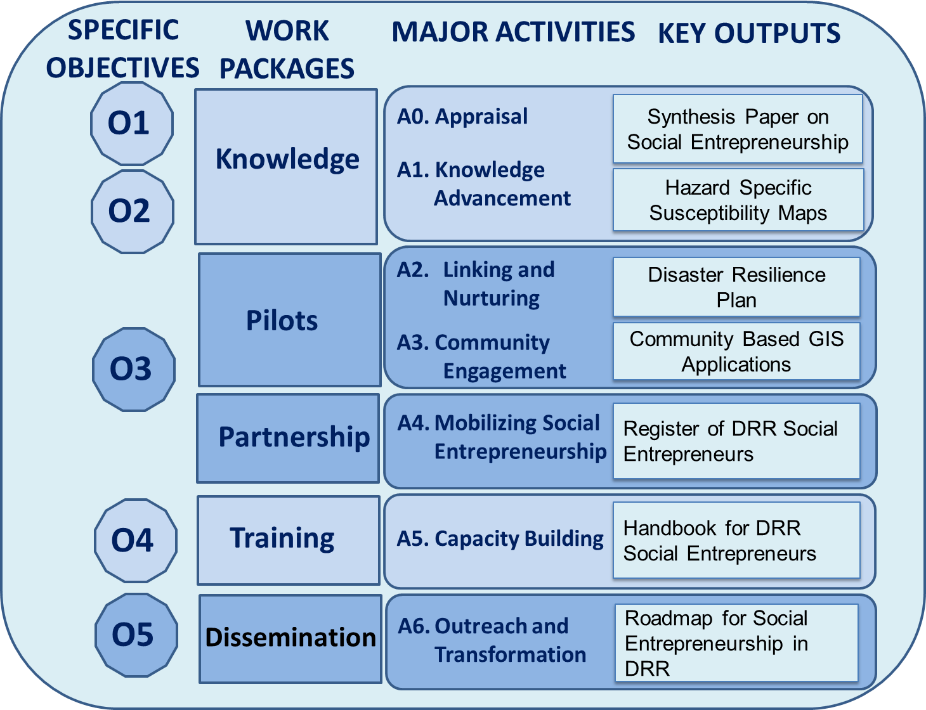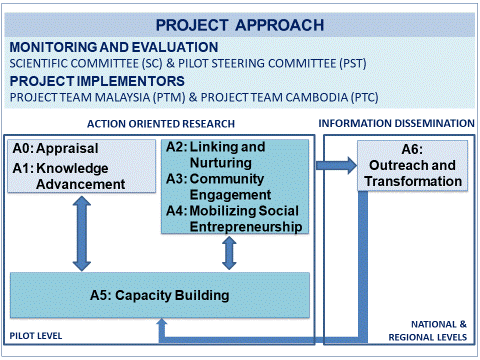ABOUT
Jump To: Project Overview | Project Objectives| Project Approach | Project Monitoring
The project on “Promotion of Social Entrepreneurship in Disaster Risk Reduction to Build Community Resilience” is funded by the International Development Research Centre (IDRC) and implemented by Universiti Kebangsaan Malaysia’s Southeast Asia Disaster Prevention Research Initiative (SEADPRI-UKM). The 3-year project commenced on 1 September 2019, led by Professor Joy Jacqueline Pereira of SEADPRI-UKM. The project highlights are as follows:
Project Overview
Entrepreneurship is crucial both to long-term community resilience and to reducing poverty, vulnerability, and disaster risk in communities moving toward recovery and reconstruction. This project aims to foster long-term community resilience to climate change in Malaysia and Cambodia. It will do so by empowering young female social entrepreneurs to develop disaster resilience plans via the use of both geographical information system and crowd-sourcing technology. The project will conduct action-oriented research and capacity building activities via four pilots: three in Malaysia and one in Cambodia.
The Malaysian sites comprise a coastal-zone (Kuala Selangor), floodplain (Shah Alam), and highland area (Ampang Jaya) in Selangor. The pilot in Kampong Speu Province, Cambodia is exposed to drought, coastal hazards, groundwater shortage, and subsidence. To promote social entrepreneurship as an effective means of disaster risk reduction, the project will investigate fast- and slow-onset hazards specific to these areas.
The disaster resilience plans will help the governments of Selangor Darul Ehsan and Kampong Speu Province develop local disaster risk reduction strategies, which will benefit about 5.79 million people in Malaysia and 716,517 in Cambodia. The project will support the implementation of Target E of the Sendai Framework on Disaster Risk Reduction and contribute to Sustainable Development Goal 13 on climate action.

Project Objectives
General Objective: Foster long-term community climate resilience in Malaysia and Cambodia by empowering young female social entrepreneurs to develop their own disaster resilience plans.
Specific Objectives
- Deepen understanding of social entrepreneurship’s impact on long-term community resilience and vulnerability as well as on disaster risk reduction in communities moving toward recovery and vulnerable to future threats;
- Increase multi-hazard-forecasting knowledge to integrate disaster risk reduction and climate change adaptation;
- Advance engagement with and foster long-term resilience of communities by mobilizing social entrepreneurship in disaster-risk reduction;
- Enhance the capacity of young female social entrepreneurs to contribute to disaster risk reduction and climate resilience;
- Strengthen policy engagement and collaboration with government entities to enable them to put in place disaster resilience plans and policies to promote female social entrepreneurship in DRR.

Project Approach

Project Monitoring
The project deliverables and financial performance will be monitored by the International Development Research Centre (IDRC). The Scientific Steering Committee comprises an international group of experts from Canada, the United Kingdom, Japan, and China, among others, providing advisory input to maintain the quality of the research products. The pilot in Selangor is monitored by a Steering Committee chaired by the Selangor Disaster Management Unit, representing the Selangor State Government. Members include the National Disaster Management Agency (NADMA), Ministry of Environment, Ministry of Economic Affairs (MEA) and Academy of Sciences Malaysia (ASM), among others.
